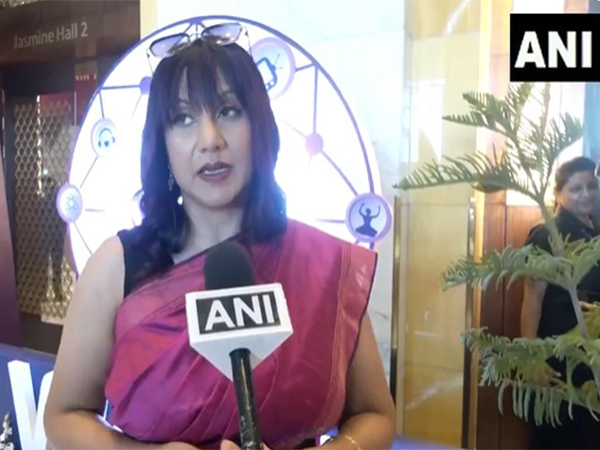South Korea: 'Major companies' vs 'start-ups'; competition for mRNA vaccine development has begun
Sep 17, 2021

Seoul [South Korea], September 17 (ANI/Global Economic): As Korean companies and institutions' consortium was additionally launched to develop mRNA (Messenger Ribonucleic Acid) COVID-19 vaccine by next year, the competition has begun.
Assuming that the efficacy and safety of the COVID-19 vaccine and drug are guaranteed, the 'speed of development' is most important and is expected to lead fierce speed competition.
On the 15th, the Korean Biomedicine Industry Association launched 'mRNA Bio Venture (Start-up) Consortium' with 3 companies that have mRNA technology (Quratis, EyeGene, Gene One BioScience), vaccine manufacturer Boryung Pharmaceutical, and the Vaccine Safety Technology Support Center under the Ministry of Food and Drug Safety.
These companies are planning to commercialize the mRNA COVID-19 vaccine, which is undergoing clinical trials, by the first half of next year, and also draw candidates for COVID-19 variants. The consortium is aiming to be granted conditional acceptance for phase 3 by a result of Phase 2. It is planning to secure mass production technology and facilities that can produce 500 million doses per year.
Previously, the 'K-mRNA Consortium' was launched by Hanmi Pharmaceutical, ST Pharm, GC Green Cross, and the Korea Innovative Medicines Consortium, which was invested by Korea Pharmaceutical and Bio-pharm Manufacturers Association, at the end of June. Recently, Dong-a ST and Ecell have also joined.
This consortium is also aiming to develop the mRNA COVID-19 vaccine by the first half of next year. It is planning to produce 100 million doses of mRNA vaccine annually by next year by achieving conditional acceptance. Also it is planning to establish a mass production system for vaccines based on the mRNA platform and produce more than 1 billion doses by 2023.
Both consortiums are still in the early stages of development, but start-up companies' consortium is ahead in clinical trials. Quratis received approval for phase 1 of the mRNA candidate 'QTP104,' which was jointly developed with HDT Bio, for the first time in Korea and is conducting the phase 1. EyeGene also recently started administering the mRNA vaccine 'EG-COVID' to first patient with the approval of phase 1 and 2a.
At the K-mRNA consortium, ST Pharm has derived the candidate 'STP-2104' and is conducting clinical trials. It is planning to apply for phase 1 clinical trial approval within this year.
CEO Cho Yang-je of EyeGene said at the launching ceremony on the 15th, "The K-mRNA consortium is aiming to jointly develop mRNA from the first stage, however, the three companies of our consortium have already been conducting clinical trials, and thus the situation is different."
Getting started first does not guarantee faster commercialization. SK Bioscience also lagged behind other start-up companies in the early days of COVID-19 vaccine development, but it was granted the approval for phase 3 for the first time among Korean companies.
The industry explains that production capacity, GMP(Good Manufacturing Practice)-level facilities, and sufficient financial power for clinical trials are needed to succeed in commercialization.
"We cannot know which company will be fast, or will succeed," said an official from the Korea Innovative Medicines Consortium. "In order to get approval, the company must have production capacity and GMP facilities that can maintain constant quality and supply stably. Also, there are various variables such as financial power for post clinical trials."
Currently, Hanmi Pharmaceutical has a mass production system that can annually produce more than 100 million doses of three key raw materials, including plasmid DNA. ST Pharm has built GMP processes facilities for mRNA and is planning to secure a production capacity of 10 million doses based on undiluted vaccines annually by the end of this year. It will build the facility that is needed for phase 3 clinical trials first and expand it later.
ST Pharm is in charge of manufacturing undiluted vaccines, the core process of mRNA production. It forms mRNA by adding RNA polymerase to spike DNA and delivers it to LNP (lipid nanoparticles). GC Green Cross is in charge of producing finished products by injecting undiluted vaccines into vials. In addition to the current production capacity of 400 million doses (based on finished products), it is planning to invest in facilities that can produce 600 million doses next year.
At the venture consortium, Quratis has built its own mRNA vaccine production facility. According to the Korean Biomedicine Industry Association, it has established a production line that can carry out the entire process from undiluted vaccine to LNP and finished production. Also, it has a GMP-level Osong Bio Plant that can produce about 750 billion doses per year based on the finished product, and Bio Research Institute.
EyeGene, which is using liposome rather than LNP as a messenger that delivers mRNA into cells, needs to build a separate manufacturing facility. Its partner company BMI Korea is currently constructing a liposome production facility at its Jeju plant. It is planning to secure production capacity up to 20 million doses by the end of this year. Plant 2, which has been further expanded its production capacity, is under construction in Osong. EyeGene received mRNA technology such as capping from the U.S. company TriLink BioTechnologies. It also has its own cationic liposome delivery technology. EyeGene explained that there will be no patent issue because it has also been granted for domestic patent.
Gene One BioScience has undiluted mRNA vaccine production technology and plasmid cGMP mass production technology. Boryung Pharmaceutical has a packing process of finished products that can produce 12,000 vials per hour.
Global capability is also one of major factors that lead to successful development.
In the case of ST Pharm, it passed the due diligence conducted by the U.S. FDA, the European Medicines Agency, and global pharmaceutical companies. It also has experience in commercializing antiviral drugs of the U.K. company GSK and the U.S. company Gilead Sciences. Hanmi Pharmaceutical has established partnerships with global pharmaceutical companies, such as MSD, Genentech, and Spectrum Medical. (ANI/Global Economic)



















